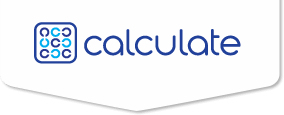

Challenge:
Though highly regarded for its health programs, the University — a Catholic women’s institution at the time — was struggling with enrollment. Over a 5-year period, first-year enrollment declined more than 31%.
The University needed a website that could function as its primary marketing & recruitment tool. We proposed a complete overhaul with new content, strategy, architecture, and design.
Solution:
The goal was to develop an enrollment-generating website that would tell the university’s unique success story. To do so, we implemented a variety of inbound strategies designed to:
- Attract new leads
- Convert leads to applicants
- Keep the user’s experience at the forefront
In creating the new site, we focused on the following:
- Strategy: developed and adhered to a strategy designed to attract and convert high-yielding prospects
- Content: completely re-wrote the site with lean, active, marketing-driven language
- Implemented web- and SEO-friendly headlines and bulleted, scan-able text
- Added easy-to-see calls to actions throughout
- Added simple engagement forms on key pages
- Launched a responsive design to cater to the mobile audience
- Reworked the architecture for an easy, intuitive user experience
- Implemented a new design to facilitate user interaction; images, graphics, and buttons draw attention and motivate action
- Moved all content intended for the internal audience to the university’s intranet
- Eliminated unnecessary external links, thereby reducing the opportunity of losing users before they completed an action
- Created a centralized model where the university’s marketing team could control the top levels of the site and review all updates for approval
Results:
In the first year, 5,600 prospective students submitted “learn more” conversion forms, giving the Admissions team 5,600 new leads.
- In the first 5 months, 48% of applicants who filled out a form either enrolled, deposited, were admitted, or accepted.
In its first full recruitment cycle, the site delivered the following:
- 37% of all applicants came through conversion forms
- First-year enrollment increased by 42%
- 36% of enrolled graduate students cited the website conversion forms as their primary source of access to the university

